Employers have been experiencing the highs and lows of recruiting and retaining employees for years, with even more challenging times predicted as the forces of digital transformation accelerate. As such, companies, educators, and policy makers increasingly recognize the need for new approaches to developing and nurturing talent. This entails continued experimentation in leveraging the full suite of training methodologies and tools, as well as the further exploration of alternatives to the trad tional 4-year degree that focuses on equipping candidates with job-ready skills and a viable career pathway.
Among the potential benefits organizations may realize, or have realized, from implementing an apprenticeship program are training workers to suit their needs, addressing skills gaps early in a worker’s career, and engaging with local schools, community colleges and other feeders.
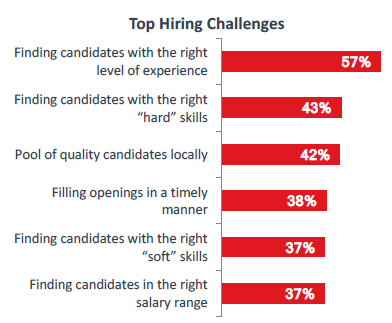
In addition to the 87% NET of organizations that have tried ‘newer’ types of recruiting methods, a similar portion have relaxed hiring requirements or expanded roles/audiences over the past 1-2 years to help fill open positions (86% NET). For instance, over a third (34%) have expanded training (e.g. more training provided for new hires), 31% increased the amount of staff training/cross-training, and 3 in 10 opened certain positions at different levels (e.g. more entry- or mid-level positions). Looking ahead, nearly three-quarters expect training for new hires (73%) and training/professional development for existing staff (70%) to grow in importance over the next 2 years (NET of somewhat + significant growth).
More specifically regarding IT positions, nearly half of the employers in this study (across a mix of industries and sizes) indicate having openings for IT-related jobs over the past 12 months (47%). In comparison, this is second only to operations job openings (49%), and above other areas such as customer service (44%), sales/marketing (32%), and finance/accounting (32%).
Besides the hiring and retention challenges employers deal with in general, there are a myriad of issues in particular regarding the IT workforce and filling the tech pipeline.
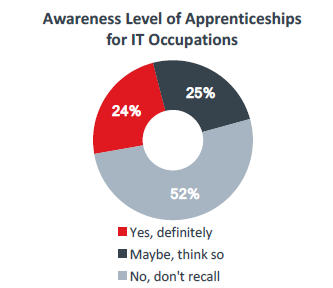
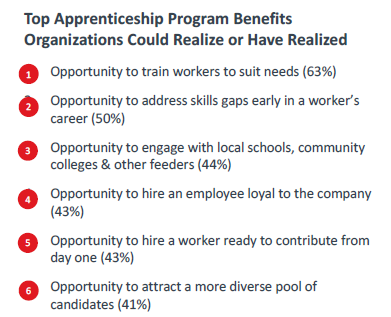
[See CompTIA’s Assessing the IT Skills Gap.] Perhaps then it is no wonder that the great majority of hiring managers think apprenticeship programs could be an approach relevant to most IT occupations (44%) or to some (47%) such as IT support/help desk or network administration.
While most employers see potential benefits to implementing an apprenticeship program (95% NET), top concerns include finding the ”right” apprentice (52%), staff time to manage (48%), and retention after completion (37%).
Nonetheless, 80% believe the concept of apprenticeships for certain types of IT occupations has merit (NET of probably + definitely has merit). And despite the potential hurdles, most view a formal, registered apprenticeship program as worth the requirements to obtain benefits such as tax credits (86% NET of somewhat + mostly positive). Moreover, 91% NET indicate that one or more resources would be helpful to their organization in exploring, starting or running an IT apprenticeship program including training (49%), partnerships (40%), continued professional development support for employees (37%), and assessments (36%), among several others.
The data for this quantitative study was collected via an online survey fielded to 553 U.S. hiring managers and executives during December 2017. Any questions regarding the methodology should be directed to CompTIA Research and Market Intelligence staff at research@comptia.org.
The Computing Technology Industry Association (CompTIA) is a leading voice and advocate for the $4.8 trillion global information technology ecosystem; and the more than seven million technology professionals, who design, implement, manage, and safeguard the technology that powers the U.S. economy. Through education, training, certifications, advocacy, philanthropy, and market research, CompTIA is the hub for advancing the tech industry and its workforce. Visit www.comptia.org to learn more.
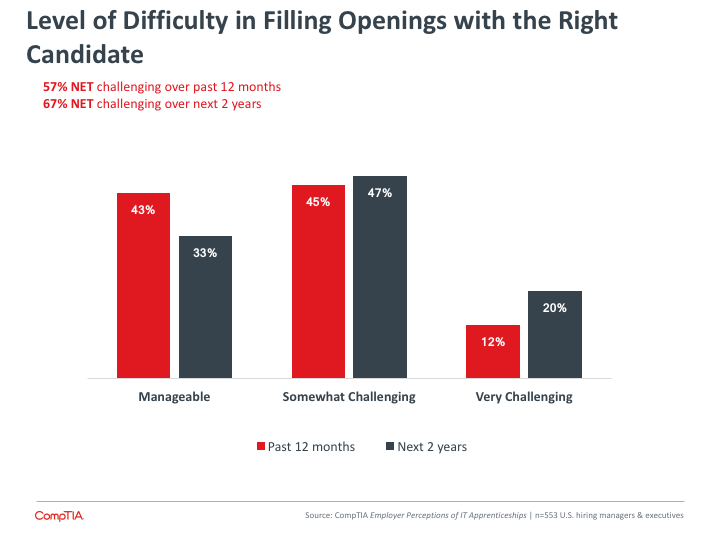
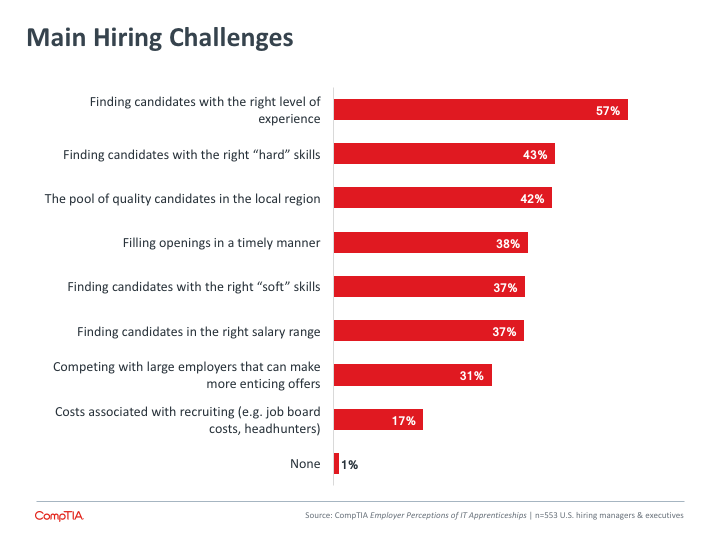
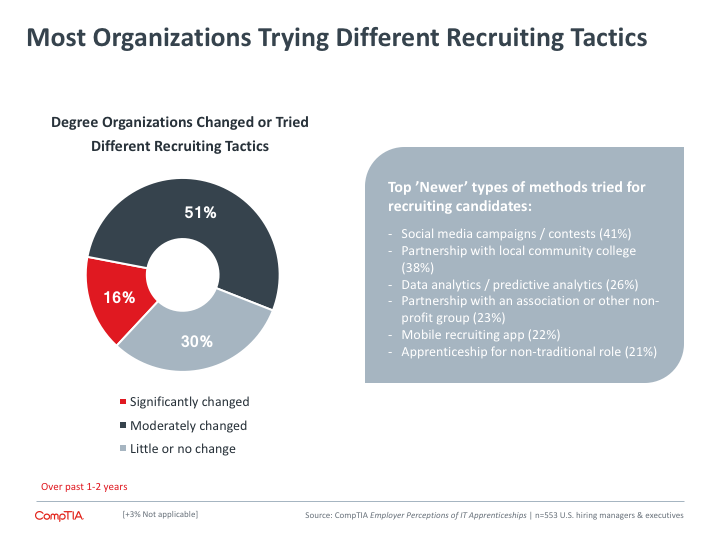
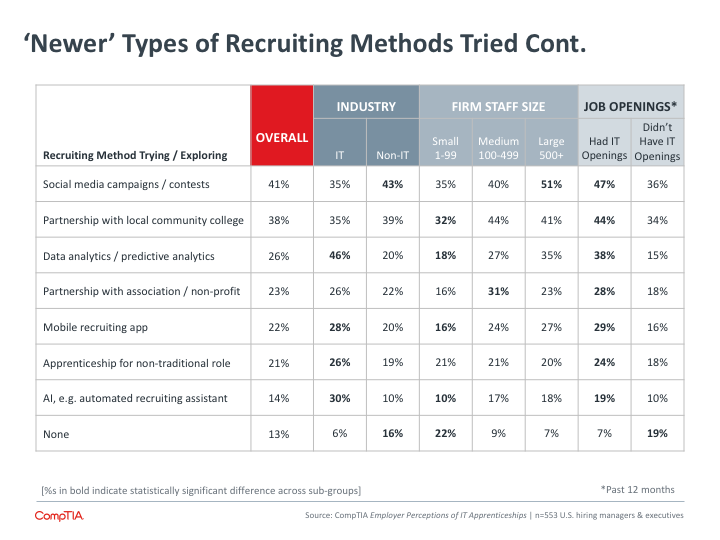

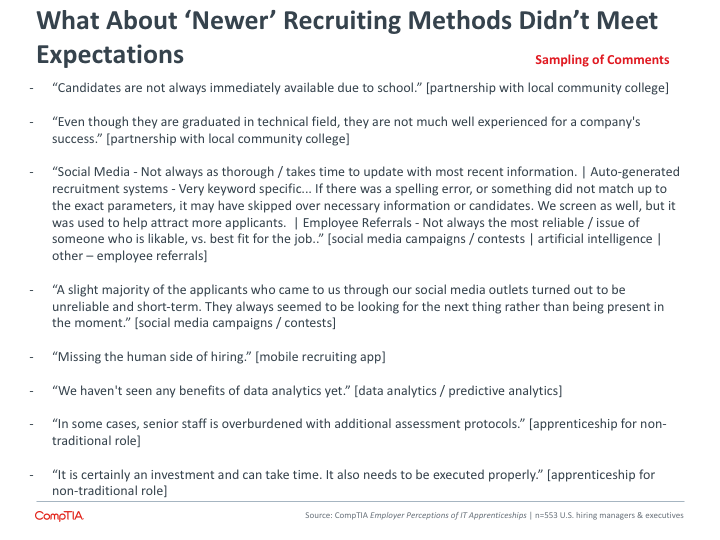
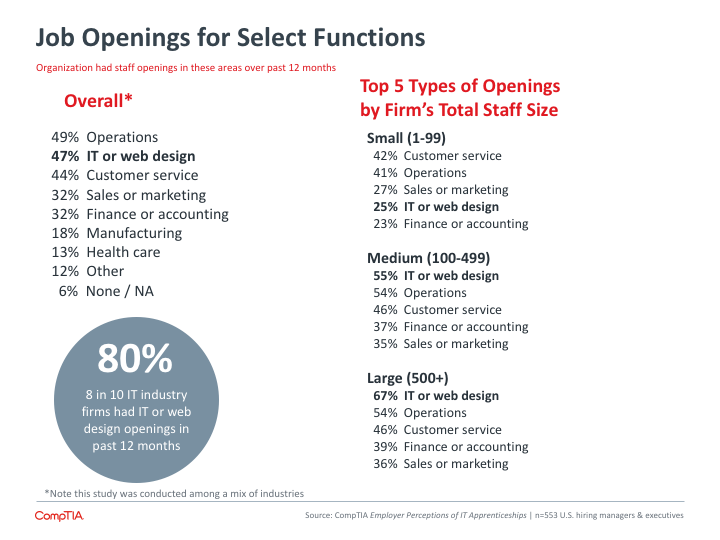
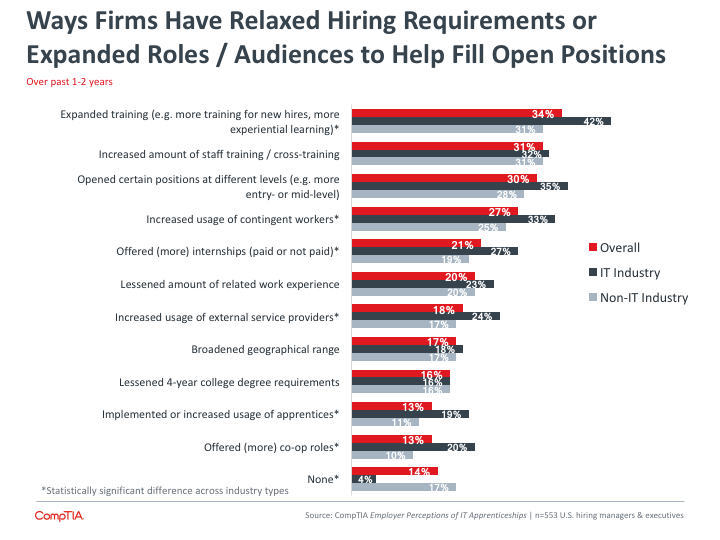
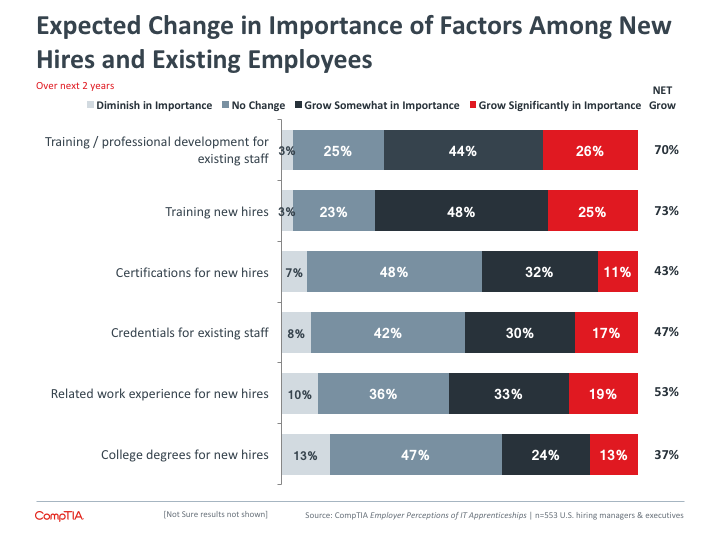
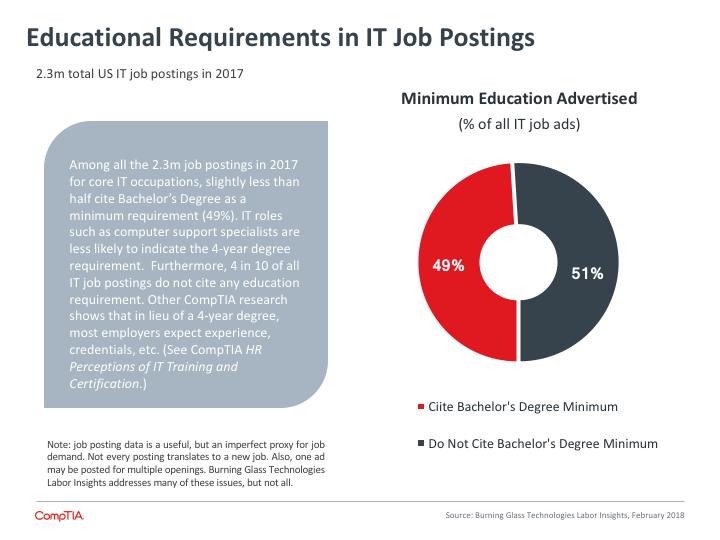
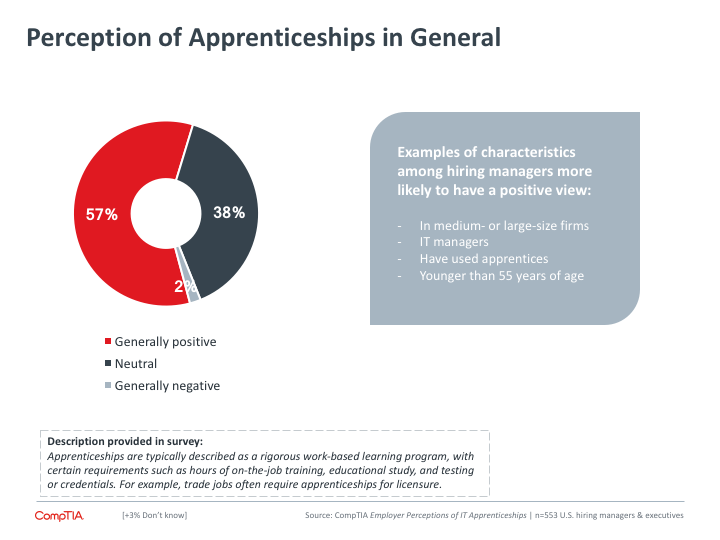
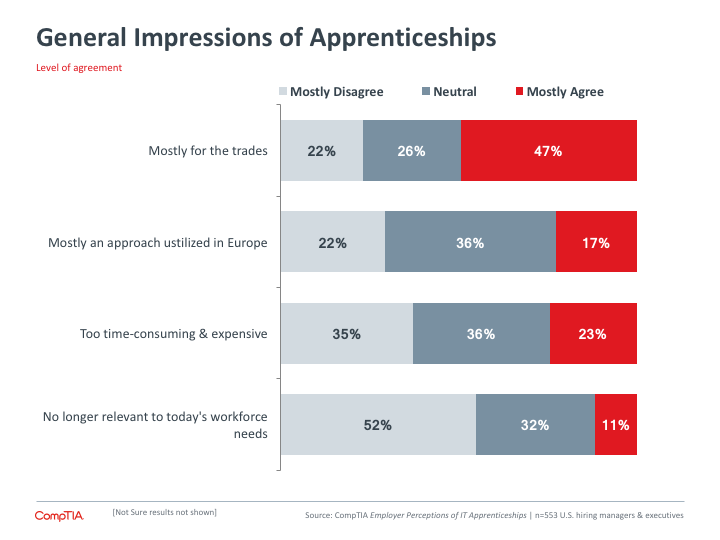
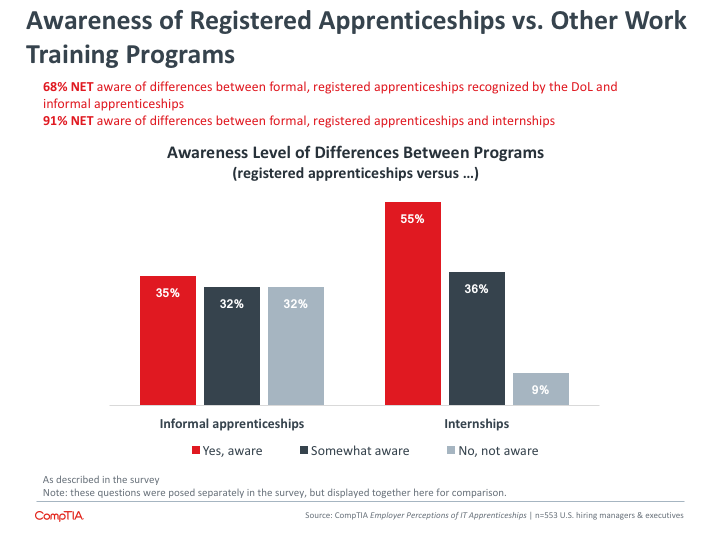
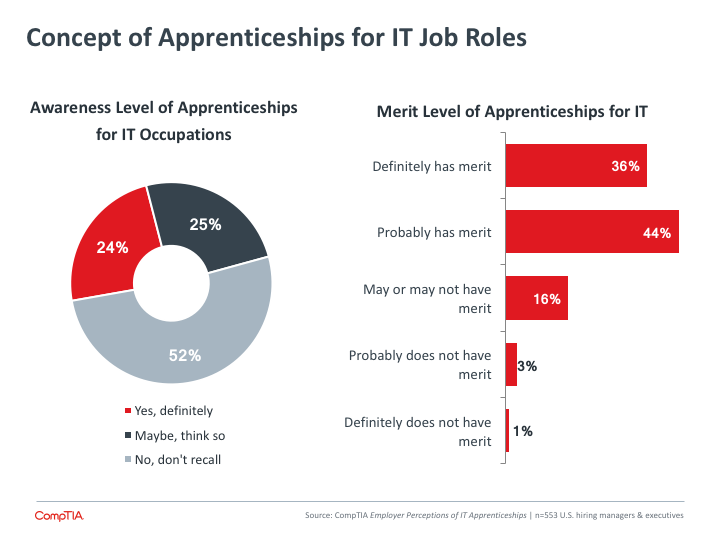
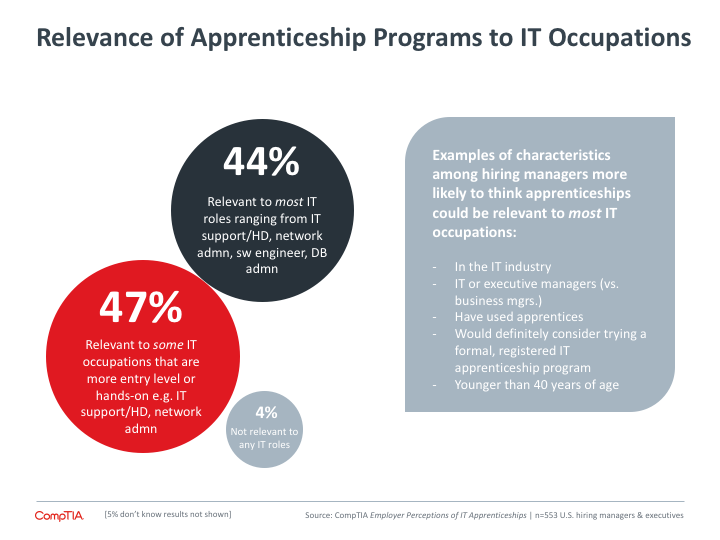
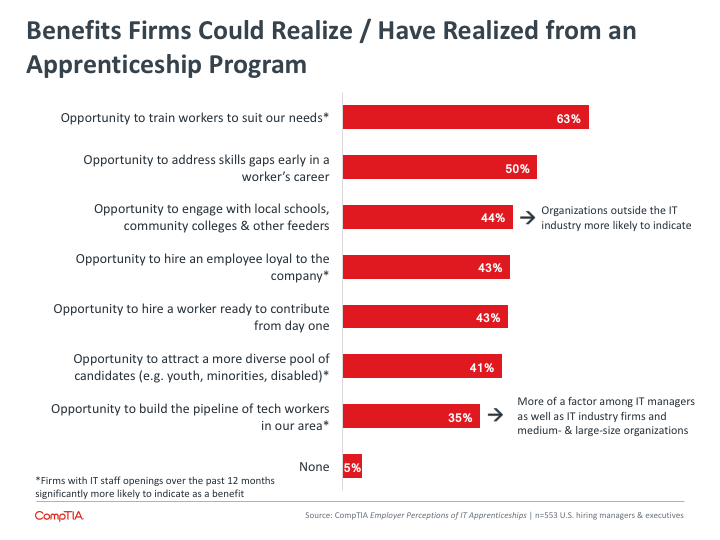

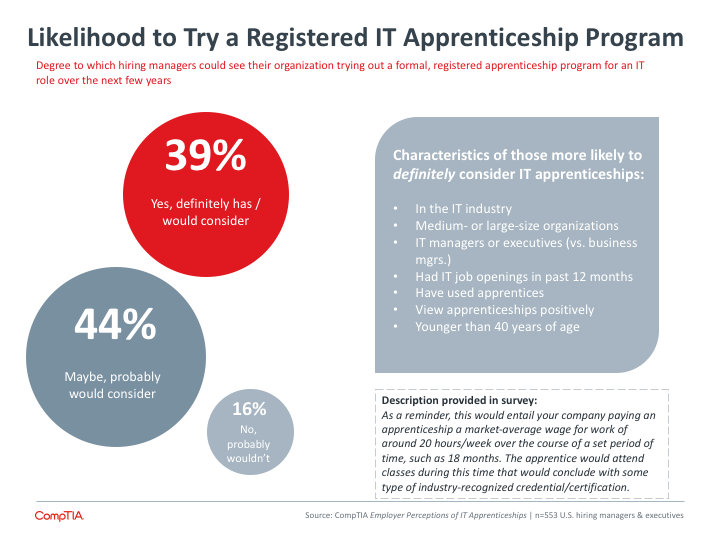
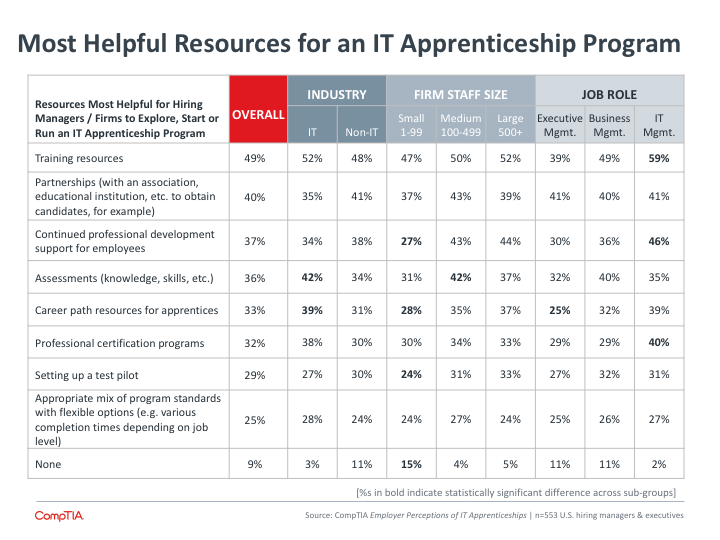
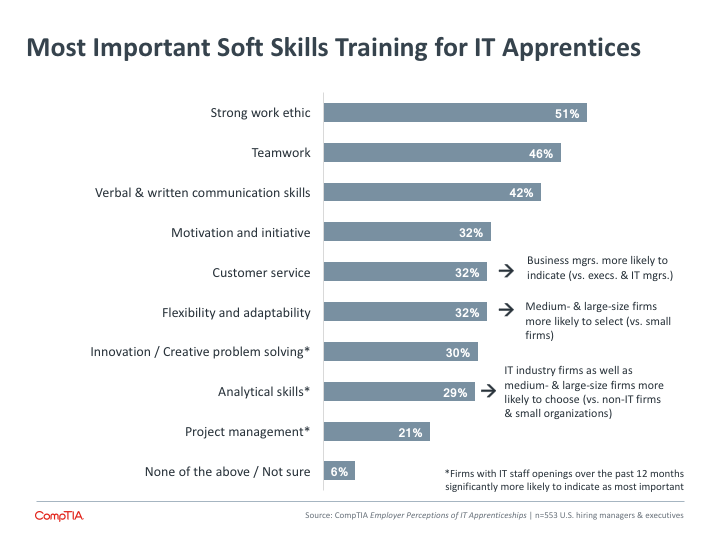
Read more about IT Workforce.
Tags : IT Workforce